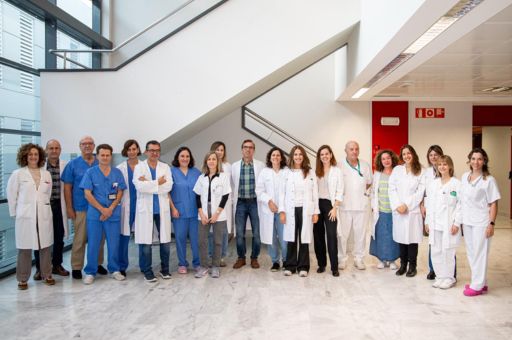The PATHI programme allows kidney transplants to be performed on patients who are on the waiting list and who are immunologically more complex.
The Son Espases University Hospital has managed to transplant twenty-six kidney patients who, due to their complex immunological situation, had very few options for finding a compatible donor. This progress has been made possible thanks to the Programme for Access to Kidney Transplants for Hyperimmunised Patients (PATHI), an initiative of the National Transplant Organisation (ONT) designed to prioritise those who have the most difficulties in accessing a transplant. This programme stands out for its multidisciplinary approach, bringing together the expertise of immunologists, nephrologists and hospital transplant coordinators.
TDB keeps you informed. Follow us on Facebook, Twitter and Instagram
Son Espases manages to perform twenty-six kidney transplants in patients with a high probability of rejection due to their high immune sensitivity
In Spain, it is estimated that approximately 20% of patients on the waiting list for a kidney transplant are hyperimmunised. This means that their immune system has developed antibodies that identify most donated organs as foreign, due to previous experiences such as pregnancies, blood transfusions or previous transplants. The antibodies attack any organ that is not compatible with their immune profile, making it extremely difficult to find a suitable donor. In these cases, the match is extremely low: out of every 100 potential donors, less than two would be suitable for these patients. As a result, hyperimmunised patients often spend more time on the waiting list, which can lead to a deterioration of their health due to prolonged dialysis while waiting for a compatible transplant.
The PATHI programme addresses the challenge of hyperimmunised patients through a national distribution strategy that prioritises these complex cases. It uses advanced technology to quickly identify which organs are compatible with each patient’s immune system, significantly increasing their chances of transplantation.
The programme, launched in 2015 by the National Transplant Organisation (ONT) in collaboration with the autonomous communities, has ensured that more than a thousand hyperimmunised patients throughout Spain have received a kidney transplant.
The participation of the Hospital Universitario Son Espases in the PATHI programme is essential to offer a therapeutic alternative to these patients. Since its inception, the Hospital has evaluated fifty-four patients who met the inclusion criteria and has managed to transplant twenty-six of them thanks to the identification of compatible organs. This progress has improved the quality of life of these patients, who would otherwise have spent much longer on dialysis.
This achievement is the result of teamwork involving immunologists, nephrologists, the entire transplant coordination team and urologists. It is an interdisciplinary effort that also involves anaesthesiologists, radiologists, nurses, laboratory technicians and assistants, who are essential to the whole process. In addition, the Hospital team stresses that none of this would be possible without the generosity of donors and their families, whose decision saves and transforms lives.
